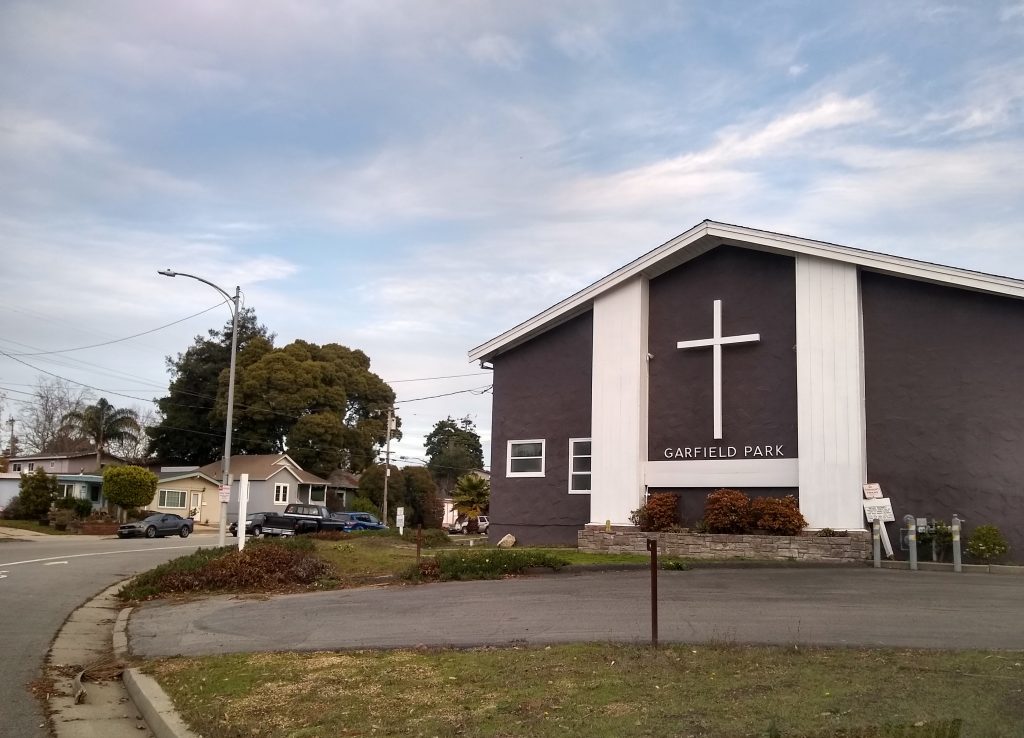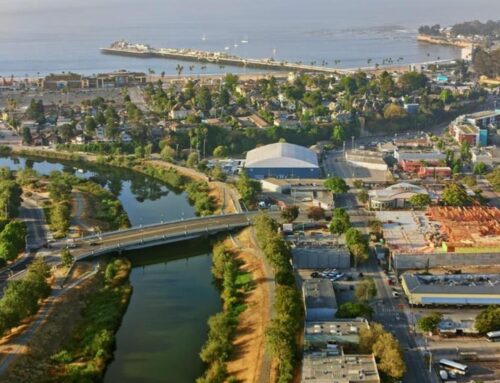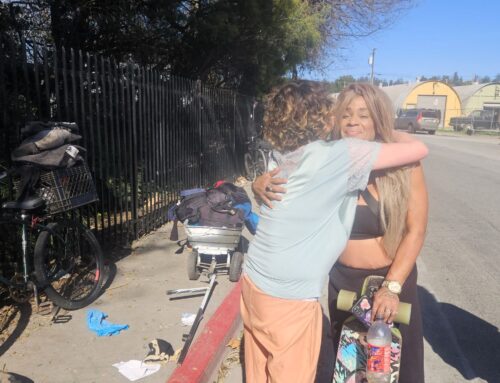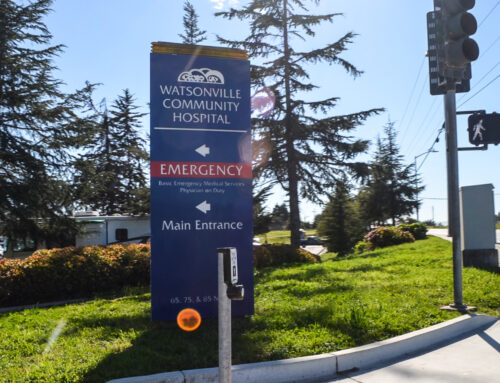Santa Cruz Local offers its Santa Cruz City Council meeting recaps free as a public service. But journalism can be expensive — and deep, time-consuming, investigative journalism is the most expensive of all.
Santa Cruz Local depends on memberships from people like you to make sure vital information can be available to all. Can we count on your help?
SANTA CRUZ >> The Santa Cruz City Council granted unanimous approval to the demolition of the 61-year-old Circle Church Tuesday night, making room for a co-housing project with 10 to 12 new houses with the potential for additional granny units.
“I know it’s an important site for the neighborhood in many ways,” said Councilmember Cynthia Mathews. “But I think this can be a real asset for the neighborhood going forward as well.”
The approval meant the seven-person development group calling themselves the Circle of Friends LLC can move forward with a project that calls for at least 10 new houses with up to 12 accessory dwelling units, also known as granny units.

The city council’s decision was a bit of a foregone conclusion as the Housing Accountability Act, passed by the California Legislature in 2018, forces local governing bodies to approve housing projects that comply with local zoning rules.
The law is an attempt to stimulate the construction of housing and help ease the state’s housing affordability crisis.
Tuesday evening, the city council actually approved both alternatives to the project, in an unusual move aimed at giving the developers options.
“I am pleased we are building in flexibility,” Mathews said.
The first alternative, preferred by the developers, calls for 12 houses surrounding a common building at the center of the 1.67-acre lot. The developers have said they would build 12 granny units with that plan. The second alternative, also approved, was favored by city staff. It calls for 10 houses, four granny units, a common building and six detached condominiums.
“My goal is to maximize affordable housing, said Councilmember Sandy Brown. “I am pleased that the conditions we set up here will do that for us.”
Not everyone was pleased with the project, as several Westside residents have opposed the project, saying the demolition of the church represents the destruction of a community icon and spiritual center of the neighborhood.
Jessica Reeves, who spoke during the meeting on behalf of a group called Save the Heart of the Circles, pleaded with the city council to delay approval, saying several neighbors wanted to preserve the property in its current condition.
“Our goal is to buy the property and preserve it as a community space,” Reeves said.
Other neighbors talked about the church’s longstanding significance in the neighborhood and said the unusual configuration of the Circles neighborhood was meant to orient toward a public space at the center, not a private residence.
“We do not want to lose a significant community asset that has provided significant community benefit,” said Sue Powell, who also lives in the Circles neighborhood.
However, many Westside residents expressed approval of the proposed project, saying they would welcome their new neighbors.
Patricia Combs said those in opposition to the project needed to come to terms with the fact that the Circle of Friends bought the parcel in 2017 and have a right to develop their own property.
“They have to consider this is private property,” Combs said. “There is not going to be a park.”
Mayor Justin Cummings acknowledged that the law dictated how the city council could proceed.
“I’d like to see this remain a community space, but the reality is this is private property that was sold from one individual to a group of people who are willing to see this project move forward,” Cummings said.
The city council made a major change to the second alternative, allowing the developers to build six small condominium units on the property, instead of the original plan that called for the six units in one larger complex.
Many who opposed the project told councilmembers that if approval was inevitable they would prefer not to see a large condo complex at the center of the property.
“12 units and no condos are preferable because it better matches the character of the neighborhood at present,” said Eric Garcia, a resident who lives near the proposed project.
While the applicants were given discretion in terms of which option they ultimately pursue, the Circle of Friends must submit final design plans to the city council for approval.
The council also stipulated that the property developers cannot tear down the current church until they have a grading permit.
“By tying it to a grading permit, there is an indication the applicants are far enough along to be investing in grading and infrastructure,” said Eric Marlatt, the planning department’s assistant director.
Save the Heart of the Circles members asked for the demolition permit to be tied to the building permit to prevent the applicants from tearing down a beloved church before they were able to garner the necessary financing.
“We do not want a huge empty lot vacant for a year or more,” Reeves said. “The church is currently being used by businesses and once the pandemic is over there will be kids in the gymnasiums once again.”
But Marlatt said the particularities of the property, including its circular lot and the proposal to build at least 10 different houses and other detached units means that the church will have to come down to perform grading and utility installation work.
Thus, the city will tie the demolition to a grading permit.
The developers admitted the coronavirus pandemic has made their way forward through the immediate future fraught with uncertainty.
“This project would be challenging without the coronavirus,” said Brett Packer, a member of the Circle of Friends. “It is extremely challenging with it.”
The developers are also required to build the community building within eight years of the initial building permit, according to conditions added by the council during the meeting.
Deficits on the horizon
In the council’s afternoon session, City Manager Martin Bernal warned council members that the city was projected to face approximately a $20 million deficit in the next three years.
In the next fiscal year, which begins in July, the city is projected to incur $10.4 million in losses.
“The extent of severity will remain unclear for some time,” Bernal said. “It will depend on how long social distancing will be necessary.”
Projections call for a $6 million deficit the following fiscal year and a full three years before the city budget starts running a surplus again.
No hotel tax hike
The city council also agreed to abandon its plan to increase the city’s transient occupancy tax.
The city had planned to let voters decide in November whether to raise the tax on hotels, motels, Airbnb rentals and other overnight accommodations. But the COVID-19 pandemic stopped the effort.
“We do this not without grieving a little bit for all the work we did, but it is not likely to happen this year,” said Councilmember Sandy Brown. “It’s just another indication of how deep this crisis is.”
Matthew Renda is a freelance writer who has garnered multiple awards for his reporting. His work has appeared in the Santa Cruz Sentinel, the Mercury News, CNET, CBS News, The Atlantic and Outside Magazine. He lives in Watsonville with his wife, Jessica, and their two children.





